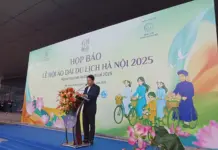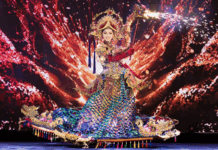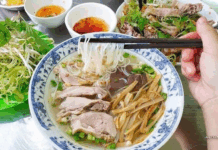The Embassy of Saudi Arabia and the University of Languages and International Studies at Vietnam National University jointly hosted a special event in Hanoi, celebrating the cultural, historical, and economic significance of camels.
This event shed light on the profound impact camels have had on Arab life and culture, offering Vietnamese attendees a unique perspective on the animal’s role and value. Hamoud Naif S. Almutairi, Charge d’ Affaires a.i of the Embassy of Saudi Arabia, emphasized the camel’s importance, dubbing them the ‘desert ships’ that enabled Arabs to settle in harsh desert conditions.
The camel holds a revered position in Arabic culture and religion, as referenced in the Quran. This event also marked the proposal of the Camel Festival, an annual celebration with an award named after King Abdulaziz. The festival, held in the Umm Ruqaybah area near Al Artawiyah, Saudi Arabia, showcases special events and attracts traders, all united in honoring the camel.
It serves as a platform to promote the heritage values associated with camels in Saudi Arabian, Arab, and Muslim cultures. Additionally, it emphasizes the economic importance of the camel, integrating auction and camel-related industries into a new economic system that benefits society and those fascinated by this rich cultural heritage.
Ha Le Kim Anh, Vice Rector of the University of Languages and International Studies, highlighted the event’s significance for lecturers, students, and enthusiasts of Arabic culture, providing them with a unique opportunity to learn about the camel’s symbolic and practical role in the Arab world.
Attendees were immersed in Arabic culture through traditional products like dates, coffee, and camel art. The dromedary camel, native to the Arabian Peninsula, has spread across North Africa and the Middle East, with evidence of migration to Egypt and Sudan dating back to 2,500-1,550 BC. Camels are also found in some areas of the Near East and Central West Asia.
Arab camels are distinguished by their long legs, lightweight build, and relatively hairless bodies. Their humps store fat, providing essential nutrients during harsh arid conditions. Over millennia, camels have been pivotal to human society, especially after their domestication 3,000-4,000 years ago.
They serve as a means of transportation, a source of food and raw materials, and their products are crucial for ensuring food security. People in the Arabian Peninsula rely on camels for milk, meat, and skin, making them integral to their way of life and survival in challenging environments.
Vietnam to battle Japan, Australia, China in final qualifying round for 2022 FIFA World Cup
Vietnam have been placed in the same group as regional favorites Japan and Australia in the final round of the Asian qualifiers for the 2022 FIFA World Cup.









